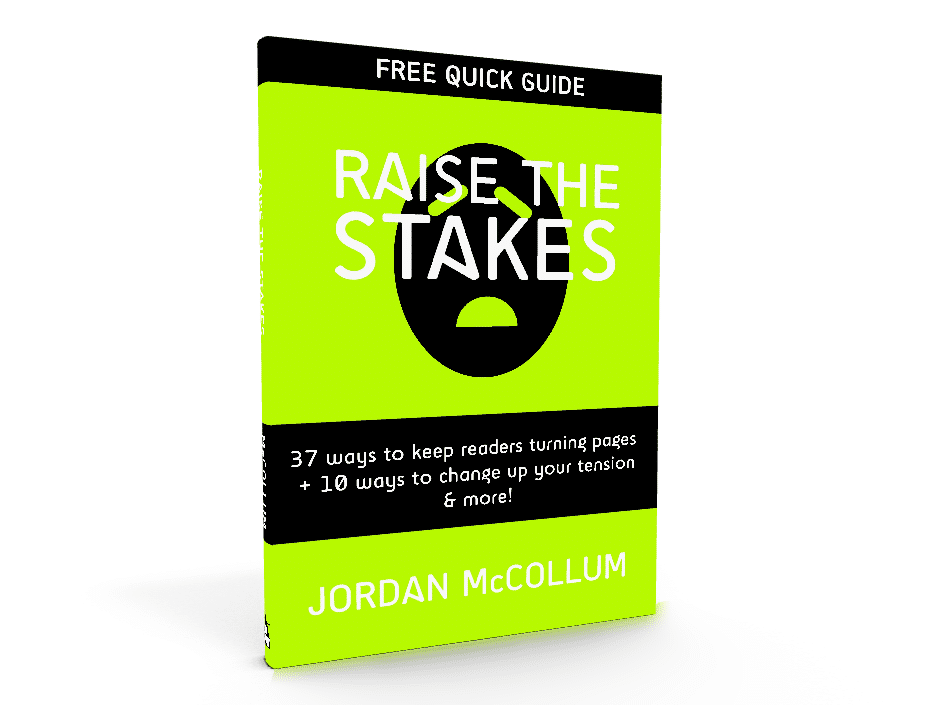Is becoming a better writer on your list of New Year’s Resolutions? (No? Want to go add it really quickly? I’ll wait.)
That’s a pretty lofty goal. And like most goals, it’s kind of impossible to achieve without breaking it down into individual steps. Here are a few.
Begin with a benchmark
Pull up a file of something you’ve written recently (first draft or completed project). Save a copy of it in a specific place: your email, online backup, Google Drive, etc. Add a reminder to your calendar on December 31, 2014, to read the file (and include where you put it!). We’ll come back to this.
Quick tip: don’t use a document you’re planning on publishing in that exact form in 2014, unless you like exercises in futility and frustration.
Identify areas you can improve
Most of us are acutely aware of our own weaknesses. What skills do you want to work on?
- Plotting
- Writing faster/slower
- Specific areas: dialogue, description, backstory, voice, character arcs, etc.
- Structural macro-editing
- Line editing
- Critiquing others’ work (or maybe your own!)
- Publishing workflow
- Connecting with a community
- Marketing
Take a class
When you know what skills you want to improve, find a class to help you. You can look at writers conferences in your area or online, or you can seek out classes through websites. I highly recommend Margie Lawson’s classes, but there are dozens of websites and email lists that offer fantastic resources. (As always, do your research before you pay anybody for a class online!)
Find a critique group, partner or mentor
If you don’t already have a trusty group of critique partners, this will probably be the #1 thing to move your writing forward in 2014. If you’re not quite ready to share your work with other writers for critique, then perhaps seek out a mentor to help foster and improve your writing: maybe not even someone who’s published, but someone who you trust and respect. And ask nicely
Read a craft book
Head over to Amazon or your local library and pick up a book on writing craft. Explore another genre, borrow techniques from another medium (screenwriting books rock), or focus on a particular technique (like, say, Character Arcs?), even research a topic or location—no matter what you look at, you’re guaranteed to learn something!
Read a novel
I do focus so much on my own writing and critiquing that I don’t have as much time for reading as I would like. But every time I take the time to read, I always wonder why I don’t do this more often 
That actually sounds horrible and boring. But it’s not.
Practice
All that training and preparation doesn’t do you much good if you don’t take the time to put it into action. WRITE SOMETHING NEW and apply the skills you’ve learned.
Try something new
If you followed my series about my first ten novels, you’ll see that with every novel, I shared the lessons I learned, either in craft or career. And they usually include “this was the first time . . . ”
I have to explore new themes and techniques in my work, or I lose interest. But doing that is also one of the best ways to continue to grow your craft. So try writing from a POV you don’t normally use—first, third, omniscient, etc. Try a new tense. Take a new genre for a test ride. Do something different—challenge yourself and see how much you grow!
Let go of perfectionism
Can you actually get better if you let go of striving to be perfect? Yes, if perfectionism is keeping you from moving forward. Whether it’s silencing the inner editor while you draft, moving past your insecurities to query or publish your work, or obsessing over someone else’s awesomeness and deriding yourself—stop.
Let go of fear
Uh, yeah. I have four small kids, so I never, ever see movies in the theatre (hate paying for tickets, hate paying for food, hate having to leave my house…). However, I have four small children, so I have an excuse to see every Disney film in the theatres. If you haven’t seen Frozen yet, it’s pretty wonderful.
One of my favorite parts happens after newly crowned Queen Elsa accidentally reveals her magical powers (manipulating ice and snow), after hiding them for many years. She runs away and gains perspective about her fears and her powers, and sings an awesome song, and has some pretty awesome graphics to go with it:

(It was nominated for a Golden Globe, so yeah.)
If fear is holding you back, let it go and create something wonderful. [Tweet this!]
Check back
At the end of 2014, take another example of your most recent writing: whether that’s the polished version of the file you picked out at the end of 2013 or a different piece (though I would suggest not comparing a 2013 finished product to a 2014 first draft). Read through all or part of your 2013 file and your 2014 file. What would you change about your 2013 file? Is it better or worse than you thought?
What do you think? How have you become a better writer? How will you work to improve in 2014? Would you like monthly challenges & assessments here to work on becoming a better writer?









